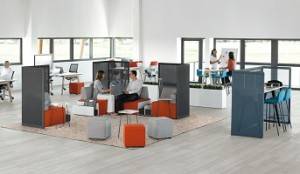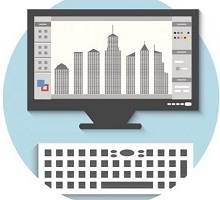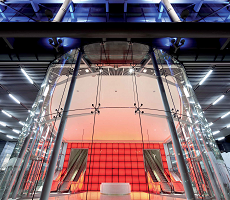April 18, 2014
The latest issue of Insight is now available to view online
 In the latest Insight newsletter, available to view online; read (and watch) a list of some of the greatest songs to deal with the arcane subject of office furniture and discover the six dimensions of wellbeing that can be impacted by the design of the physical environment. Details of the first free and publicly available resource for building professionals to access detailed comparative data on carbon in buildings; and research that shows moderate stress levels can actually help a manager’s performance. Mark Eltringham suggests the real reasons why so many employers champion the open plan office layout and argues the design of trains [pictured] is almost as great an indicator of workplace thinking as the office itself. Finally, our regular contributor Simon Heath defends the much maligned HR function. To automatically receive our weekly newsletter, simply add your email address to the box on the home page.
In the latest Insight newsletter, available to view online; read (and watch) a list of some of the greatest songs to deal with the arcane subject of office furniture and discover the six dimensions of wellbeing that can be impacted by the design of the physical environment. Details of the first free and publicly available resource for building professionals to access detailed comparative data on carbon in buildings; and research that shows moderate stress levels can actually help a manager’s performance. Mark Eltringham suggests the real reasons why so many employers champion the open plan office layout and argues the design of trains [pictured] is almost as great an indicator of workplace thinking as the office itself. Finally, our regular contributor Simon Heath defends the much maligned HR function. To automatically receive our weekly newsletter, simply add your email address to the box on the home page.

























April 3, 2014
Remove flexible working stigma to improve women’s career chances says report
by Sara Bean • Comment, Flexible working, News, Workplace
(more…)